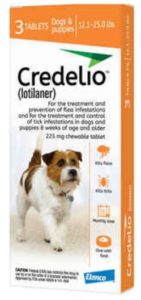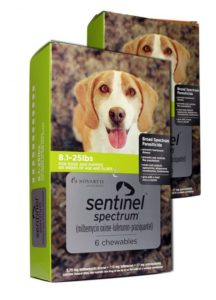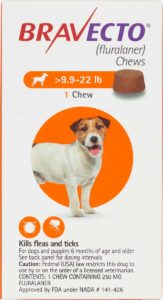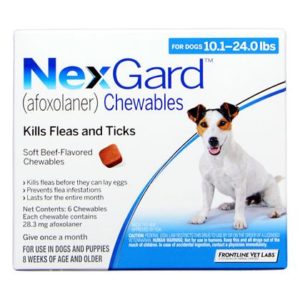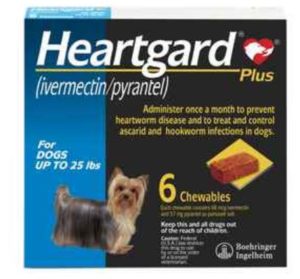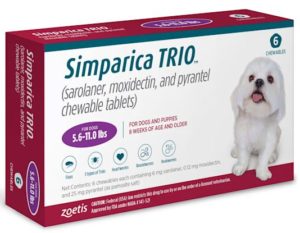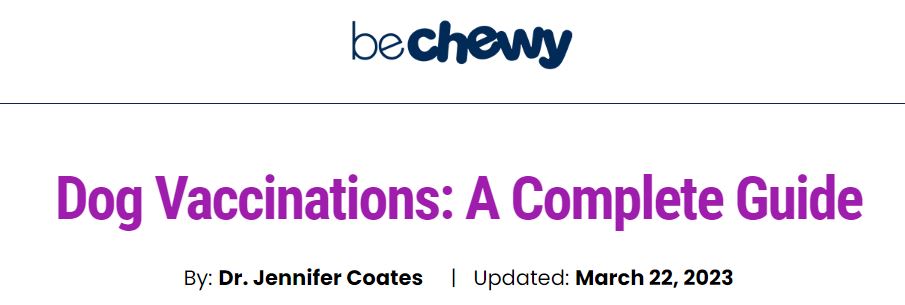Puppy Visits the Veterinarian:
Veterinarian Exam
In the wellness exit review, all puppies are thoroughly examined by the Vet, they receive their first Distemper/Parvo vaccine booster, they are weighed, and have microchips placed under their skin prior to them leaving for their new homes. We also have a community fecal test performed during this visit to check for any abnormalities.
Who Are Our Vets?
Animal Ark Clemmons
3515 Lawrence Street
Clemmons, NC 27012
336-778-2738


Lawndale Veterinary Hospital
4314 Lawndale Drive
Greensboro, NC27455
336-288-3233
Animal Hospital of East Davie
5162 US HWY 158
Advance, North Carolina 27006
336-940-3442


Clemmons Veterinary Clinic
6373 Cephis Dr, Clemmons, NC 27012
336-766-8511
Sometimes it takes a village to treat all of our dogs. COVID created scheduling challenges that required we use multiple vets for various services. The main point is that all puppies were seen, evaluated, vaccinated and received excellent timely services as needed. On puppy pickup day, all families will receive a Puppy Report Card listing deworming and vaccine information along with the puppy’s health evaluation.
Vaccines and Deworming:
Havanese are a toy breed dog and because of their size, are much more susceptible to medications and vaccines. FaustHouse operates on a “less is more” philosophy and only administers medications when its absolutely necessary. The below infographic provides help with discerning what your puppy MUST have to stay healthy and what medications and vaccines are optional.
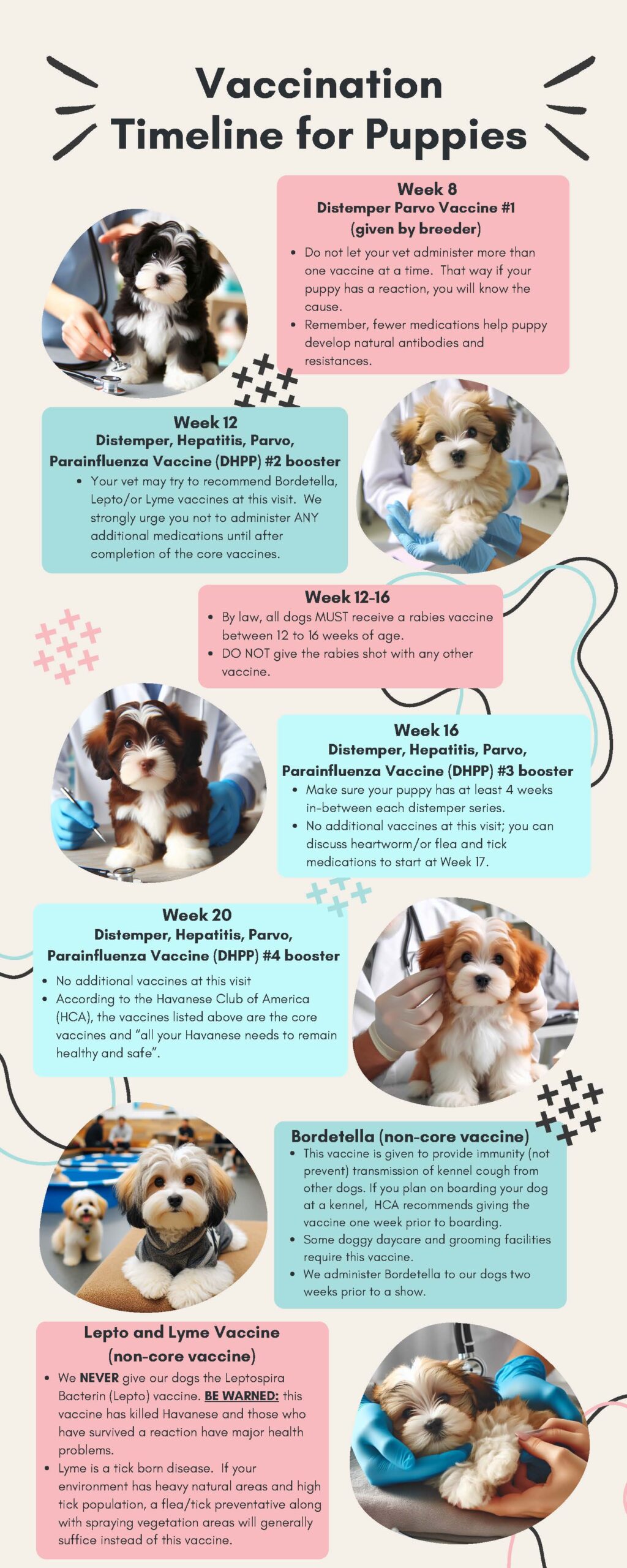
Core vs. Non-Core Vaccines
Below is an example of a vaccine schedule. Remember, some of the recommended vaccines will vary depending on where you live and the pest/animals/insects that are in your region. All puppies will need the core vaccines; Distemper/Parvo and Rabies, no matter where you live. Your Vet will be able to explain the best vaccine schedule for your local area depending on the many different risk factors that your pet will be exposed to. The main point is to find a vet that you trust and follow their recommendations. They should all give the core vaccines and then advise you for the elective vaccines depending on what risks factors are in your surrounding area. AKC notes that many adult dog owners prefer to measure current immunity levels through a titer blood test rather than simple administer additional vaccines. Due to serious adverse reactions, we do not give our dogs the Lepto vaccine (an illness that is transmitted to dogs through them drinking infected standing water that has been urinated in by infected woodland creatures). We do not give a Lyme vaccine because we treat the yard with an insect killer. I have not had a tick or flea on my dogs in well over 23 years because of the semi-annual yard treatments (once in the spring and once in the fall). My dogs do go to the groomer, attend dog shows, and are around other unknown dogs, so I do vaccinate them for bordetella each year and possibly an annual influenza vaccine depending on the need.
| Vaccine Name | When Given | Purpose | Core Vaccine |
|---|---|---|---|
| Distemper/Parvo (DHPP) | Given at 8, 12, 16, and 20 weeks; then at 1 year and 3 year boosters or titers | To protect puppy from getting distemper parvo illnesses | Yes |
| Rabies | Between 12-16 weeks; 1 year and 3 year boosters or titers | Required by law; prevents rabies transmission | Yes |
| Bordetella | Given intranasally after core vaccines; yearly IM booster shot | Reduces transmission of kennel cough respiratory disease from other canines. | No |
| Lyme | Shot given annually | Protects against tick-born Lyme disease | No |
| Lepto | Annual vaccine or titer | Protects against Leptospirosis bacterial disease; known adverse reactions especially for toy dog breeds | No |
| Canine Influenza | Annual vaccine in 2 shots 2 weeks apart | Protects against H3N2 and H3N8 influenza | No |


Fleas, Ticks & Heartworm:
Puppies will have been de-wormed prior to leaving our home. We do a fecal exam prior to them leaving, however, it is a community screening, not on a specific puppy. Puppies will need a fecal exam on their first vet visit in their new home. If worms are found, then they will need to be treated. There are several samples of medications that are available for treating worms, fleas and ticks. Most of the medications are taken monthly. Some are every 3 months. Sentinel is a good medication for our area that kills multiple types of worms and is taken monthly. Your vet can recommend what they find to be a good heartworm and monthly de-wormer medication that is specific for your area. The medications are weight based and age restricted when first starting. NexGard is a flea and tick medication that works well in conjunction with Sentinel. It is also taken monthly. Advantix, Bravecto, Credelio, Heartgard are other medications that work in similar ways to prevent fleas, ticks, heartworms and other types of worms.
Simparica Trio, Bravecto, and Sentinel Spectrum are multi-chemical formulations. To minimize adverse reactions, we recommend single active ingredient preventative for puppies (Sentinel and NexGard). Simparica Trio and Bravecto contain isoxazoline class drugs and carry label warnings that this drug has been associated with neurologic adverse reactions including tremors, ataxia, and seizures.

